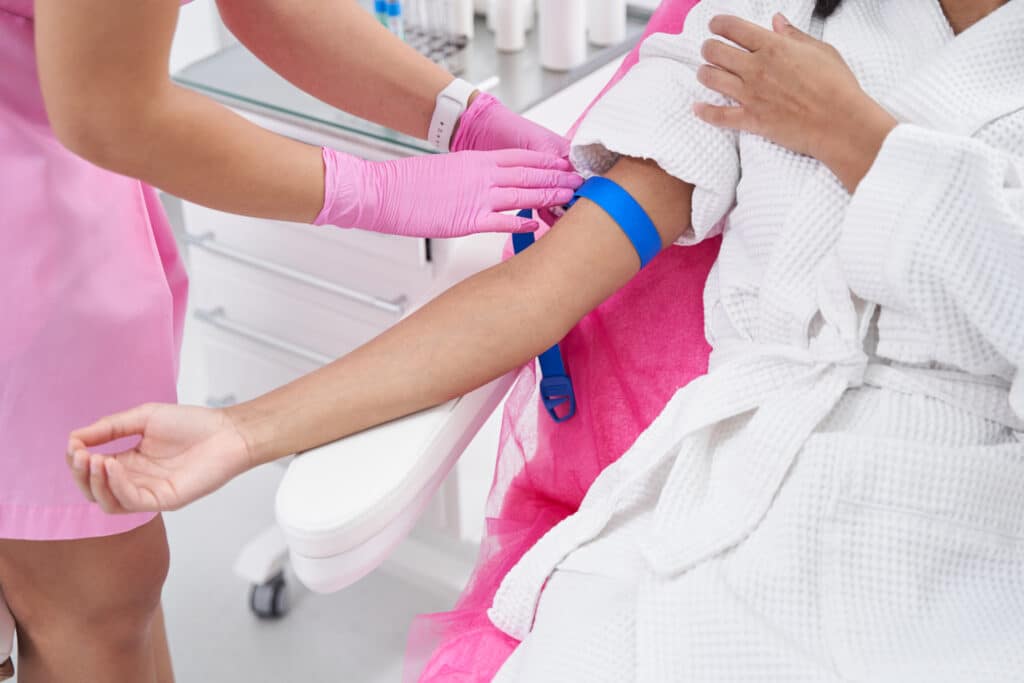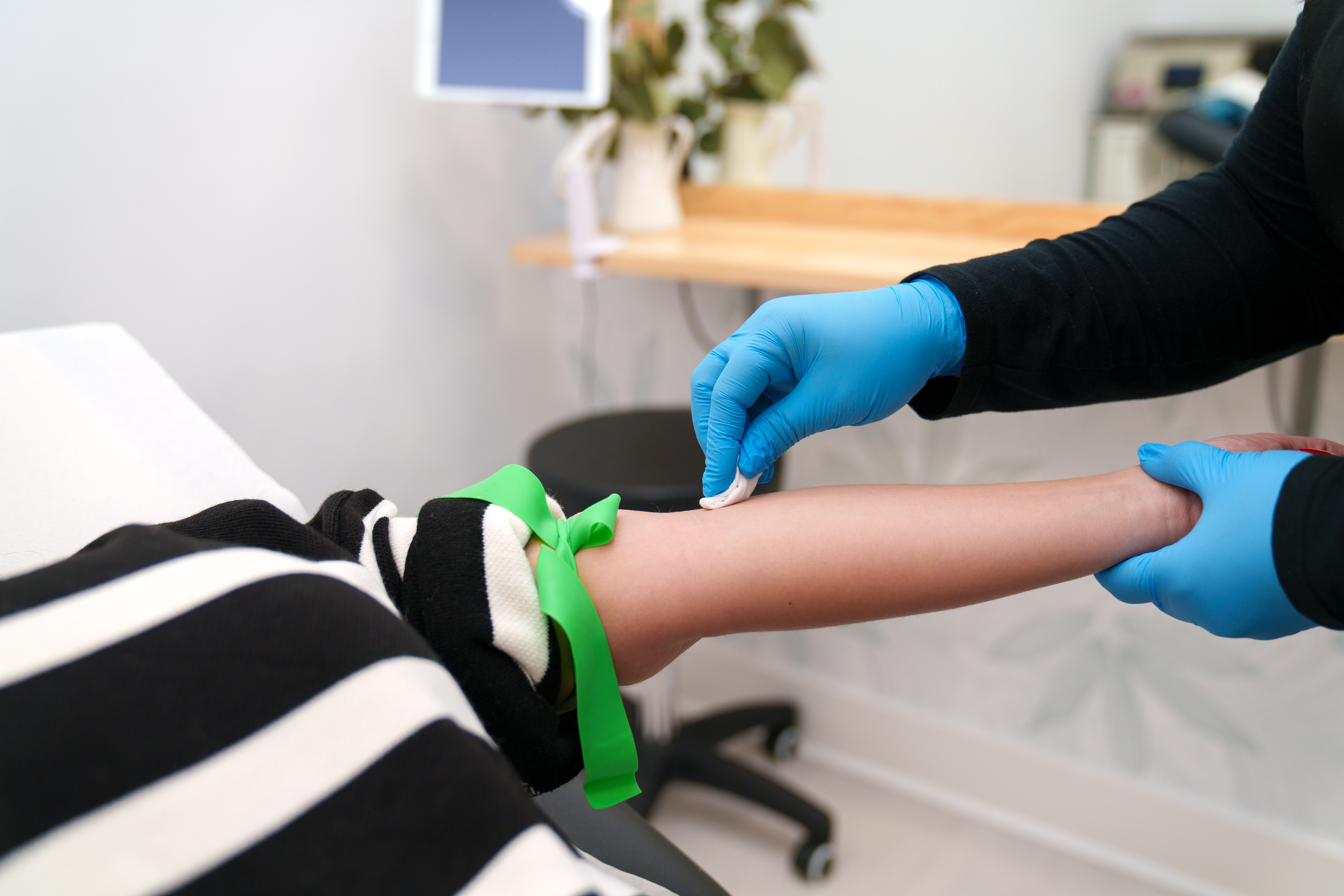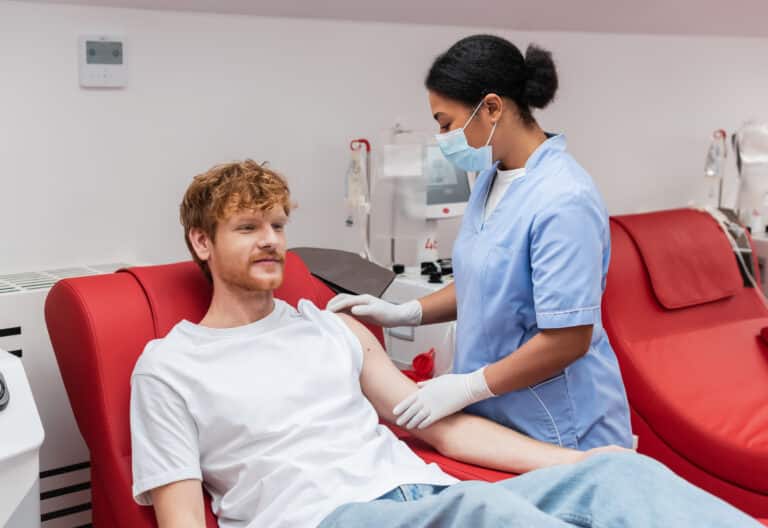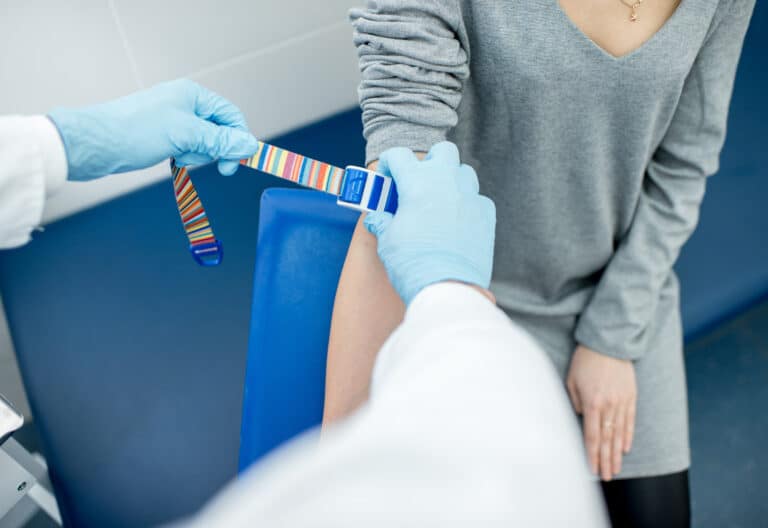If you’re looking to jumpstart towards a career in phlebotomy, you may have come across local phlebotomy classes that promise a fast track to employment. They often claim that you could become a phlebotomist in as little as three to four weeks. At first glance, these short, affordable programs may seem like a great alternative to longer and more expensive full-time programs. However, there are several things these local classes often don’t tell you. Here are five crucial facts you should be aware of before enrolling in phlebotomy classes.
1. Accreditation: Unaccredited Classes Raise Red Flags
One of the most overlooked aspects of local phlebotomy classes is accreditation. Many of these programs are not accredited by a recognized body, which can be a significant drawback when seeking employment. Accredited phlebotomy training programs are generally more respected by employers, as they ensure that the curriculum meets industry standards.
Imagine walking into a job interview feeling confident, only to be asked, “Where did you get your phlebotomy training? Is this an accredited institution?” Many candidates freeze up when they encounter this question, and understandably so. Employers in healthcare tend to favor applicants who have received their training from reputable institutions, often associated with well-known universities. A certificate from a random local school can easily get lost in a sea of applications, making it much harder to stand out.
If you want to avoid this pitfall, seek for phlebotomist certification programs that not only offer comprehensive training but also hold accreditation from reputable sources. Being backed by an accredited institution can make all the difference when you’re sitting across from a hiring manager.
2. Hidden Costs: More Expensive Than They Seem
Local phlebotomy classes often lure students in with promises of low costs. However, they frequently come with hidden fees that can quickly add up. You might be required to purchase additional materials like books or practice kits, which aren’t included in the tuition.
But that’s not all. Many of these programs require you to attend in-person classes, which means you’ll have to factor in expenses like gas, parking permits, and even time away from other commitments. These costs can significantly raise the overall expense of the program, making it far less affordable than it initially seemed.
Before enrolling, it’s essential to get a complete breakdown of all potential costs. This way, you can compare the true price of the program to other, possibly more comprehensive training options that might initially seem more expensive but offer more value in the long run.
3. Lack of Certification Preparation: Limited Curriculum
One of the most significant issues with many local phlebotomy classes is that they often do not prepare students to become certified. In the healthcare industry, certification is increasingly becoming a requirement. For example, institutions like the National Healthcareer Association (NHA) offer certifications that are recognized nationwide, giving you a competitive edge in the job market.
Unfortunately, many local classes have a limited curriculum. While they may teach you how to draw blood, they often skip over crucial topics like anatomy, safety procedures, and Health Insurance Portability and Accountability Act (HIPAA) regulations.
Certification exams test a wide range of knowledge beyond the basics of blood draws. Many students who attend these local classes end up realizing they lack the necessary skills and knowledge to pass these exams. As a result, they often need to invest additional time and money into supplementary study materials or courses just to get certified.
The most efficient path to a career in phlebotomy is through a phlebotomy program that not only prepares you to perform blood draws but also equips you with the comprehensive knowledge required to pass certification exams. This approach ensures you’re ready to enter the job market as a certified professional from the get-go.

4. Lower Salary Prospects: Certification Makes a Difference
After completing a local phlebotomy class, you might land an entry-level position at a local diagnostic chain. However, your salary is likely to be much lower than what certified phlebotomists earn. According to data from various job portals, certified phlebotomists can earn an additional $4,000 to $6,000 annually compared to their uncertified counterparts.
Employers prefer to hire certified phlebotomists because certification acts as a mark of trust and authority. It signifies that the candidate has undergone thorough training and possesses the necessary skills and knowledge to perform the job effectively. This trust often translates into better compensation and career advancement opportunities.
If you aspire to work in more prestigious healthcare settings like hospitals or major diagnostic labs, having only local, uncertified training can severely limit your options. In the long run, investing in a program that prepares you for certification can open up doors to better-paying jobs and a more secure career path.
5. No Hands-On Experience: Clinicals are Essential
A key component of becoming a competent phlebotomist is hands-on experience. Drawing blood, or performing a venipuncture, is a skill that requires practice and real-life application. Many local programs, especially online ones, fail to provide adequate hands-on clinical training.
Some programs attempt to address this by sending you practice kits and asking you to record yourself drawing blood or practicing on dummies. However, this approach falls short of providing the real-world experience needed to perform the job confidently and effectively.
The best way to gain this experience is through an externship, where you can work in a healthcare facility and practice drawing blood on actual patients under professional supervision. This type of training not only boosts your confidence but also makes you more attractive to potential employers. Unfortunately, local classes often don’t offer this valuable clinical experience, leaving you at a disadvantage when it comes to job placement.
Final Thoughts: Finding a Better Option for Phlebotomy Classes
Local phlebotomy classes may appear to be an affordable, quick way to jumpstart towards your career, but they come with significant drawbacks. From accreditation issues and hidden costs to inadequate certification preparation and lack of hands-on experience, these programs often fall short of their promises.
If you want to stand out in the competitive healthcare industry, look for a phlebotomist program that offers a university-backed certificate, prepares you for certification exams, and provides hands-on clinical experience. While it may take a bit more time and investment upfront, this approach will set you up for long-term success and better-earning potential in your phlebotomy career.
So, before you enroll in that enticing, short-term phlebotomy class, consider the facts. Investing in a comprehensive, accredited program can make all the difference in launching a successful and rewarding career in healthcare.

Jumpstart Towards Your Healthcare Career with Preppy’s Fast-Track Phlebotomy Certification!

Preppy’s phlebotomy certification program offers a fast, affordable, and fully online path to becoming a certified phlebotomy technician. Here’s what makes our program stand out:
Program Highlights:
- No Prior Experience Needed: No college degree or healthcare experience is required to enroll.
- Complete Flexibility: Study at your own pace, entirely from the comfort of your home.
- Finish Fast: You could get certified in as little as 2 months, compared to traditional programs that can take up to 2 years.
- Trusted Education Partner: The program is in partnership with Auburn University, a 150-year-old accredited nonprofit university.
- Hands-On Experience: Gain real-world experience through an externship opportunity at one of our partner locations. Complete the required blood draws for certification!
Why Choose Phlebotomy?
- Vital Role in Healthcare: Phlebotomists collect blood samples, which are essential for diagnosing illnesses and medical conditions.
- Make a Difference: Help patients feel calm and comfortable during blood draws, especially those with a fear of needles.
- Growing Demand: The field is expected to grow 24% from 2018 to 2028, far outpacing the average for other occupations (According to recent data from the BLS http://bls.gov).
- Job Security: With medical advancements and an aging population, phlebotomy technicians will continue to be in high demand.
Embark on an exciting and rewarding career in healthcare with Preppy’s online certification program!
Also read: Phlebotomist Salary – How Much Does a Phlebotomist Make?
About:
Preppy was founded by higher education expert, Grant Aldrich, whose work on college affordability and accessibility has been featured in Forbes, Bloomberg Businessweek, Business Insider, American Express, AOL, MSN, Thrive Global, Reader’s Digest, Inside Higher Ed, Evolllution, EducationDive, and nearly 100 radio shows and podcasts.
Time is money. Instead of programs that could take 2 years, Preppy provides you with education in a few months through immersive online training.
Healthcare, IT, Business, Trades…Preppy gets you ready for the trending careers in our modern economy.
Our team of higher education and startup veterans has created the best solution so everyone can obtain the emerging careers of today and tomorrow.
We look forward to speaking with you. You may also call 800-729-1317.
Phlebotomy Classes





